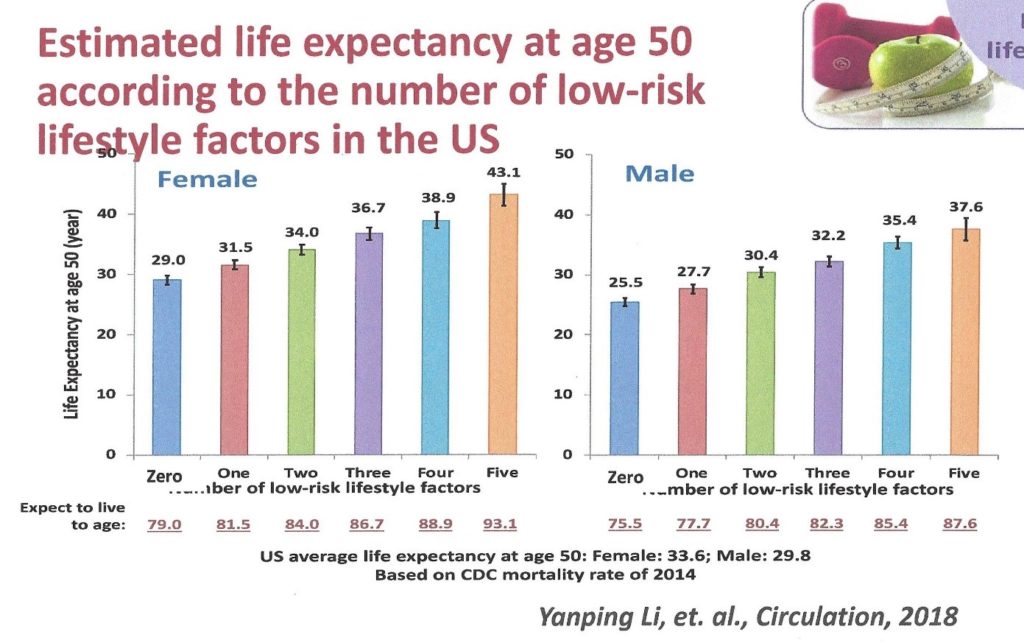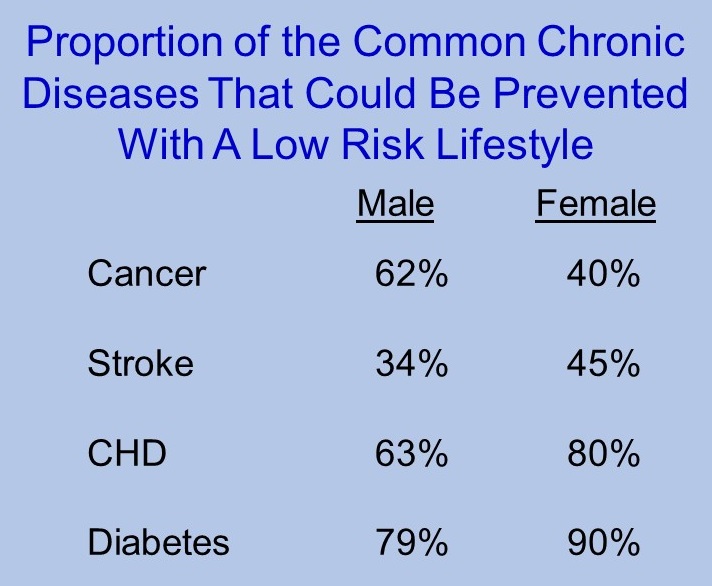
The Best Science on the Impact of Food on our Health
-
Lifestyle and Health Outcomes
-
Risk of Chronic Disease
-
Studies showing life expectancy to increasingly change based on how healthy your Diet and Lifestyle is
I was honored recently to have been invited as a guest to the Sixth Annual Whole Food Symposium at the Standard Process Nutrition Innovation Center. The center is part of the North Carolina Research Campus, an innovative campus which also houses the Plants for Human Health Institute of North Carolina State University and other university health research centers.
The symposium featured a distinguished lineup of speakers from some of the top health care institutions including:
• Frank B. Hu, MD, PhD – Chair, Department of Nutrition, Harvard T.H. Chan School of Public Health
• Andrew Heymasn, MD – Program Director of Integrative Medicine at George Washington University
• Gail A.M. Cresci, PhD, RDN – Director of Nutrition Research, Center for Human Nutrition Cleveland Clinic
• Mary Ann Lila, Ph.D. – Director, Plants for Human Health Institute, North Carolina State University
• Alison Bested MD, FRCPC – Institute for Neuro-Immune Medicine, Nova Southeastern University
The symposium was complimented by several other researchers over two days of immersion in the best cutting-edge science about the relationship between nutrition and health. I will try to share some of this information with you over the next few blog posts.
Dr. Frank Hu presented some striking data on the influence of lifestyle on health outcomes. Dr. Hu has been one of the principle investigators in the 3 largest studies of lifestyle and health outcomes, the Nurses Health Study, The Health Professions Study and the Nurses Health Study II. These studies looked at adherence to a broad group of health behaviors over a more than 30-year period and examined their predictability concerning the risk for a number for chronic diseases. The study data was very strong as it involved almost 300,000 people.
Five lifestyle factors had high predictive impact on health:
• Healthy eating index
• Regular physical activity
• Maintaining normal weight
• Moderate alcohol consumption
• Not smoking
While most people could guess these factors, there is broad under-estimation of the degree that they impact health. The most striking finding from my perspective was the difference in life expectancy at 50 years of age in those adhering to all 5 factors over the study period compared to those not adhering to any. The difference in life expectancy at age 50 years was 14.1 years for females and 12.1 years for men. Women not adhering to any of the 5 lifestyle factors live to an average age of 79 years, while those adhering to all 5 live to an average age of 93.1 years. Men not adhering to any of the 5 factors live to an average age of 75.5 years compared to 87.6 years for those adhering to all 5.
An equally important outcome was healthy life expectancy. This is how much of one’s life is lived without chronic disease. While improvements in life expectancy were made over the past century, this change was primarily the result of improved survival from infectious diseases. Healthy life expectancy over the past 50 years has actually declined with more adults living a longer portion of their lives with multiple chronic diseases.
These three large studies also looked at the relationship between a healthy lifestyle and the appearance of the diseases that have caused this drop in healthy life expectancy. All risks were dramatically lower in the group adhering to all 5 healthy lifestyle factors compared those adhering to none. Again, the statistics were dramatic. Risk was 63-80% higher for coronary heart disease and 97-90% for diabetes in those not adhering to all 5 lifestyle factors. These diseases are highly related to lifestyle and lead to the sharp declines of 12 to 14 years of life expectancy after the age of 50 years.
Dr. Hu went on to discuss the importance of “healthy” plant food in the diet. Healthy plant food provides a broad selection of phytonutrients that help control our gene activation patterns, a health effect well beyond supplying simply the essential vitamins and minerals.
There are many small variations of human genes called single nucleotide polymorphisms, or SNPs. Many of these variations make a gene express a protein or enzymes that may increase our risk of a particular disease, or others that may prevent it. The risk is related to the combination of those genes that are turned on or turned off at any time. Dr. Hu reviewed the importance of plant phytonutrients in regulating this gene activation process lowering disease risks. An example of this is sulforaphanes, phytonutrients in cruciferous vegetables that have been associated with the cancer protective effect of consuming these plants. The spectrum of these phytonutrients with important health effects can only be obtained from eating a broad collection of plant foods.
Perhaps the most overlooked point from this data is that the differences in outcome are dramatic in spite of the best medical management. In spite of progressively higher numbers of persons “managing” there disease risks with a progressively increasing armamentarium of drugs, the outcomes still pale in comparison to prevention with good lifestyle management.

